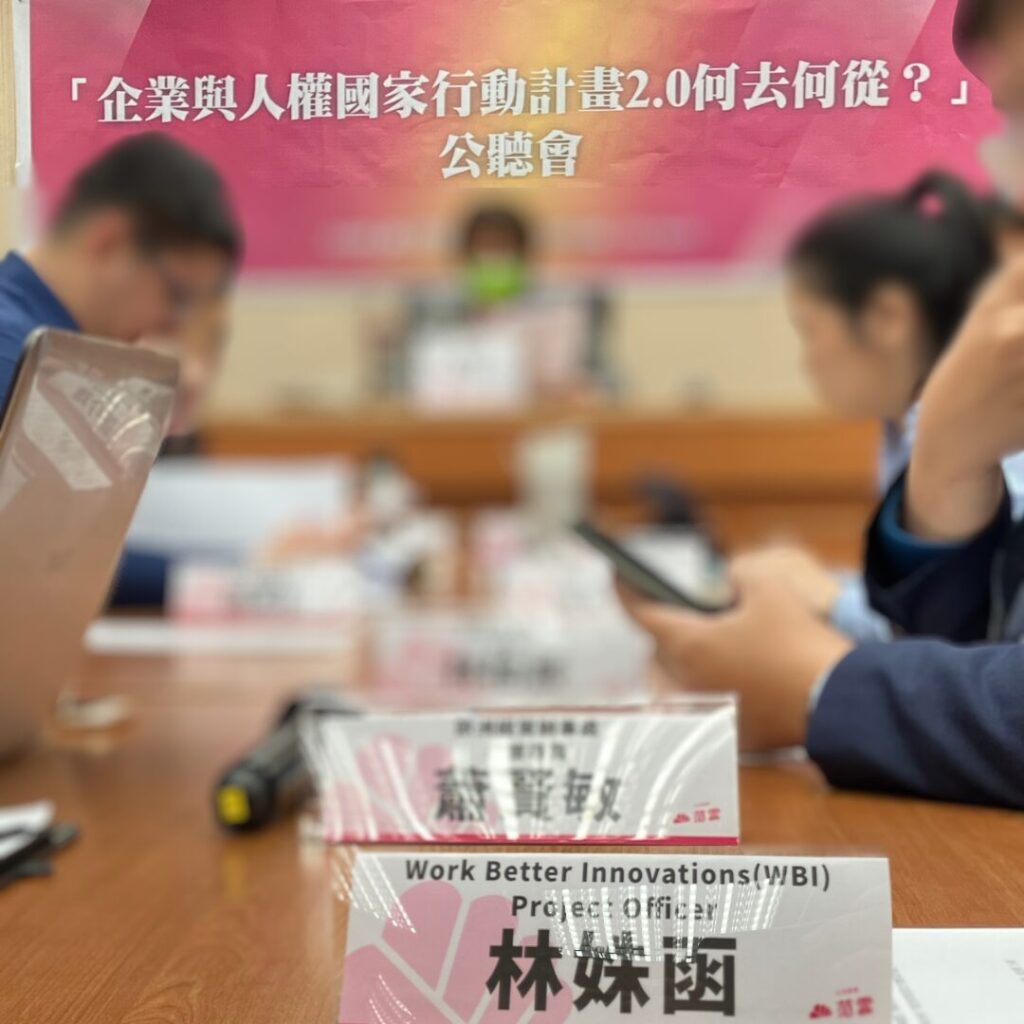24 January 2024. In the latest episode by Taiwanology, WBI’s Director Dr Bonny Ling speaks to the host Kwangyin Liu for an insightful conversation on the incoming EU Directive on Corporate Sustainability Due Diligence and what this means for Taiwan’s businesses.
Taiwanology is a podcast produced by CommonWealth Magazine, which discusses Taiwan’s geopolitics, technology and culture through the lens of the people that best represent the topics.
Tracing back to her childhood in the Taiwanese countryside to her family’s immigration to the US, Bonny highlighted her inspiration in the civil rights movement as a child growing up in Atlanta, Georgia – the birthplace of Dr. Martin Luther King, Jr. and the home of the U.S. National Center for Civil and Human Rights.
Her education at The Fletcher School in Public International Law with a focus on Human Rights, followed by the experience of working as a UN diplomat, led Bonny to study and work on fundamental human rights and labour rights issues.
Some labour abuses, such as human trafficking as she poignantly explained, can be so grave that they amount to what is considered ‘modern slavery’ or ‘forced labour.’
One of the main risks of forced labour in Taiwan is the ‘monthly service fee’ that is charged directly to the migrant workers, reducing the amount of wage that they can remit home. As one of Bonny’s students from the National Yang Ming Chiao Tung University perceptively asked, what exactly is this monthly service fee? What services does it provide?
“We need clear guidance, because it is not doing business any favours either, to have such a large discrepancy between what is expected by international standards, and moreover by brands, and what is legally permitted [by Taiwan]. We need to build on a vision of recruitment that makes better sense, that fits international standards, and that is more reflective of the way Taiwan wants to be.” – Dr Bonny Ling
Placing migrant workers under debt pressure, the ‘monthly service fee’ as well as other less visible recruitment and recruitment-related costs, can render workers tied to unacceptable working conditions.
According to the International Employer Pays Principle, no worker should pay for a job. The cost of recruitment should be borne by their employers as a business cost.
In light of the recently developments on the proposed EU Directive on Corporate Sustainability Due Diligence, Taiwan’s businesses are given the opportunity to demonstrate being forward-thinking and aligned to international standards of corporate responsibility.
As observed by Kwangyin Liu, Taiwanology’s host, the EU Directive on Corporate Sustainability Due Diligence will be a powerful tool in pushing companies to address their human rights impact as the EU’s Carbon Border Adjustment Mechanism had previously been in terms of the environment.
“Yes, the current recruitment system charging workers the ‘monthly service fee’ is legal, but that doesn’t mean it is just. It doesn’t mean that it will get you that contract with that European partner to further develop your business.” – Dr. Bonny Ling
While examples of companies already committed to remedy and to reimbursing their migrant workers fill us with hope, Bonny also emphasised the need to look at the bigger picture.
Moving from the traditional idea of doing business (pushing production costs down at the cost of workers’ wellbeing and labour rights) requires a shift in mindset. It also requires governments to work together with companies and brands towards policy coherence. The podcast ends with a powerful observation from the host:
“In the past, 1950s, what was also legal, was segregation – racial segregation. We can’t just be happy with what is legal…We have to embrace what is right. Legal doesn’t make it right. The time has come for our treatment of migrant workers to change.”
– Kwangyin Liu, Interviewer, Taiwanology Podcast Host
Listen to the full episode here.
We recommend you to read our latest Policy Brief 1/2023 to understand and distinguish different fees in Taiwan’s labour recruitment.






